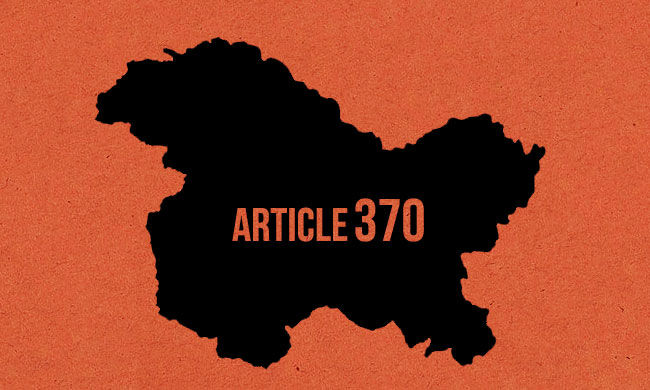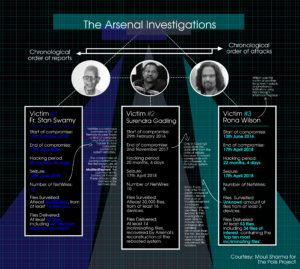
Amendments to Article 370 should also fail as they are against constitutional morality – An interview with Senior Advocate KM Vijayan

The Polis Project (TPP): What is your reaction to the recent Jammu and Kashmir State Reorganization Act passed by the Lok Sabha and Rajya Sabha?
KM Vijayan : I am a constitutional lawyer. Therefore, I am concerned only with reference to the constitution and constitutional morality on this issue. Rule of law requires that constitutional supremacy and constitutional morality are the basic features of the Indian constitution. So, my argument is restricted to the constitutional perspective alone.
The notification of the Ministry of Law and Justice dated 05th August 2019 is not restricted to Article 370(1) of the constitution. It also relates to Article 367 relating to interpretation guideline of the constitution with reference of general clauses act, subject to adaptation and modification made under Article 372. In short, besides Article 370(1), Articles 367 and 372 ‘s scope also have to be examined.
Article 370 has three subclauses. In subclause (1)(a), it says Article 238 will not apply to Jammu & Kashmir which is redundant now as Article 238 was repealed by the 7th Amendment in 1956. As on date, there is no Article 238. Subclause (1)(b) is about the law-making power by the parliament under Article 370. This is restricted to the union list and concurrent list, which is to be done in consultation with the Government of Jammu & Kashmir with reference to matters specified in the Instrument of Accession of the year 1947 which includes Maharaja or any other person for the time being recognized by the President on the advice of Council of Ministers.
Clause 371(1)(b)(ii) states that for matters other than specified under Instrument of Accession, the concurrence of the Government of Jammu & Kashmir is required. Clause (c) provides Article 370(1) will apply to Jammu & Kashmir and clause (d) states such other matters the President can by order specify. The above power is subject to consultation in matters connected with accession and concurrence with the matters that are outside the scope of the accession instrument.
Therefore, for issuing a proclamation or making laws pertaining to Jammu and Kashmir, there is a requirement for consultation with Jammu and Kashmir State Constituent Assembly, in matters relating to Instrument of Accession and concurrence of Jammu and Kashmir government in matters outside the accession instrument. Without consultation or concurrence of state government, no presidential notification is possible. “The government” means in today’s background, president on the concurrence of Council of Ministers headed by the Chief Minister.
What do Articles 370(2) and 370(3) say?
In today’s scenario, without concurrence from the legislative assembly, Article 370(3) cannot be invoked without the Council of Ministers headed by the Chief Minister. Articles 370(1) and 370(2) cannot be invoked without consultation or concurrence of the Government of Jammu & Kashmir, as the case may be. These articles say the following. In matters outside the Instrument of Accession, the concurrence of government means that before concurrence the matter(s) has/have to be placed before the Constituent Assembly of Jammu and Kashmir for taking such decisions. Article 370(3) gives the power to the President to issue a notification to the effect that Article 370 will cease to apply or apply with such modification. This again has a caveat that it can be done only with the recommendation of the Constituent Assembly. Now there is no Maharaja. So the changes, if any, have to be done within three years under Article 372.
There is an argument that Article 370 was a temporary provision that became a permanent feature. Can it be altered by Presidential Order, easily?
Whether it is a temporary or permanent provision makes no difference because the procedure to be followed for making changes is only with reference to Article 370. Initially, when the accession instrument was made in 1947, it was believed that it could be worked out within a period of three years. Now that almost seventy years have elapsed since the accession instrument was executed, it is redundant to call it temporary. At any event, there is no dichotomy in procedures relating to abrogation of Article 370.
What is your view on the interpretation of clauses being amended by the President Order dated 05th August?
Article 367 has no relevance at all for the presidential order under Article 370. It is restricted to the interpretation of the general clauses act’s applicability alone. It says subject to adaptation and modification done by the president under Article 372, for bringing force to the existing laws in conformity with the Constitution. It cannot be the source of power to issue any notification under Article 370. Besides that, power under Article 372 comes to an end in three years. So today those references to Article 372 has no relevance. President has no power to amend clauses under 370 without concurrence from the state legislature. It is a colorable exercise of power by the President by amending the definition of governor instead of government and overlooking the role of the legislative assembly given under Article 370(2). The entire exercise of the Presidential Order notified on 05th August is illegal and ultra vires to his power under Articles 367, 370 and 372 for the reasons stated above. If the Presidential Order dated 05th August 2019 fails for the reasons stated above, the new Act should also fail since it is against constitutional morality and a malafide exercise of power.
Malafide exercise of power is one of the grounds used to challenge the legislature after information technology act decision. Earlier, malafide exercise of power was not a reason to set aside an Act of Parliament. In the Information technology act case, Supreme court justice Rohinton Nariman makes this case. Similarly, in the Sabarimala case, constitutional bench discussed the idea of Constitutional Morality at length and further grounded it as a guiding principle in the interpretation of the constitution.
Article 370 has been amended before through Presidential Orders. How do those instances differ from the current situation?
Art 370 was modified in earlier occasions. In an earlier case, Puranlal Lakhanpal vs The President Of India, the petitioner argued that the six seats are allotted to the State of Jammu and Kashmir in the House of People (Lok Sabha) and election to those seats should ordinarily have been by direct election under Art. 81(1) of the Constitution but the President modified the Article under Art. 370(1); that this modification amounted to a “radical alteration” in Art. 81 and was not justified under Art. 370(1). The court however held that ” there was no radical alteration” in Art. 81 and the President had the power to make the modification which he did. Since this was done by the concurrence of state legislature art 370 is complied with. But the current amendment does not follow this procedure. President amended the procedure under Art 370, bypassing the requirement of a concurrent state legislature, by colorably amending Art 367 by substituting the Governor in the place of a legislative assembly of the state which radically changes Art 370, This does not satisfy the test of SC judgment. It is colorable because the president cannot amend art 367, after 3 years since the amendment of art 367 and 372(3).
What can you say about the tension between the executive and the judiciary at this point with regard to this particular situation?
Rarely, has the Indian judiciary taken a firm stand. Even during the emergency, they were weak. For instance, four out of the five the Supreme Court Justices in the ADM Jabalpur case ruled that during Indira Gandhi’s emergency fundamental rights can be suspended to the citizens. When the emergency was declared in 1975, all opponents of the government were arrested under draconian provisions of preventive detention laws. Essentially, the Supreme court suspended the writ of habeas corpus. But in Indira Nehru Gandhi Vs. Raj Narain case they struck down 39th amendment and again in Minerva Mills Ltd. case they were firm. But the majority of the time they are subservient to a strong executive with a comfortable majority in Parliament. We have to wait and watch.





